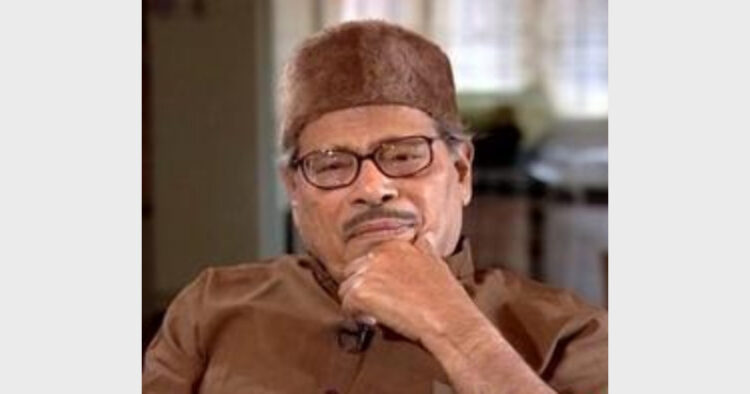Legend of the music world
Bollywood legendary singer Manna Dey, who mesmerised the audience the world over with his lilting voice, passed away at a hospital in Bengaluru on October 24, 2013. He was 94. Born in Kolkata on May 1, 1919, Prabodh Chandra Dey, as he was popularly known, Dey went on to sing over 4,000 songs in Hindi, Bengali, Gujarati, Marathi, Malayalam, Kannada and Assamese films before quitting movies in the ’90s. His last song was Hamari hi mutthi mein for 1991 film Prahaar. Dey started his career in playback singing with the film Tamanna in 1943. The musical score was set by his uncle Krishna Chandra Dey and he had to sing a duet with Suraiya. While his mastery over classical numbers somewhat pigeonholed him, the uniqueness of his voice made it impossible for any singer to replicate him.
With soul-stirring and immortal melodies like Laaga chunri mei daag chhupaoon kaise…and Puchho na kaise maine rain bitaayi… proved in the bollywood that songs sung in a classical bent of music too could be huge hits. The recipient of Dada Saheb Phalke award in 2007, Padma Shri in 1971 and Padma Bhushan in 2005 Dey mesmerised music lovers across the world for many decades with the richness of his powerful voice which had no parallel in Hindi cinema. While Laaga chunri.. and Puchho na kaise… were arguably his biggest hits, Ae mere pyare watan, ae mere bichhdey chaman, Tujhpe dil qurban was thrilling. Filmed on Balraj Sahni, this soulful melody from Kabuliwala (1961), written by Rabindranath Tagore, conveys most adequately the longing a group of Afghan Pathans working in Calcutta have for their motherland Afghanistan.
Displaying the sheer breadth of his versatility Dey also sang the lilting melody Ae meri Zohra Jabeen, tujhe maloom nahi. And then there was of course another famous dance number filmed on Pran in Zanjeer –Yaar hi hei iman mera, yaar meri zindagi. Against songs sung in true classical style such as Laaga chunri and Puchho na kaise, and also Phool gendwa na maro, lagat hei kalajwa mei chot, reminiscent of Padosan’s Ek chatur naar to come later, Dey also sang fast moving evergreen melodies such as Yeh raat bheegi bheegi, Aaja sanam madhur chaandni mei hum, and Pyar hua iqraar hua.
For this one-man institution, the Dada Saheb Phalke award in 2007 came too late, considering that Dey had held his own against greats like Mohammed Rafi, Mukesh, Kishore Kumar and Talat Mohamood from the 1950s to the ‘70s. Bollywood gossip has it that to sing another Dey classic Kasme wade pyar wafa sab baatei hei baton ka tyag in the Manoj Kumar-starrer Upkar, when Kalyanji Anandji first approached Kishore, he backed out and suggested that only Dey could do justice to that song. And in the much earlier classical qawwali from Barsaat ki Raat, Na toh kaarvan ki talaash hei, na toh humsafar ki talaash hei, Dey not only held his own against Rafi, but outclassed that great singer. —Bureau Report














Comments